Ma Ying-jeou to run for president once more?
With his visit to China trending online and his approval ratings rising, former Taiwan President Ma Ying-jeou is looking to be a possible candidate for the KMT in the presidential election next year. But the picture is more complicated than it seems, says Zaobao correspondent Woon Wei Jong.
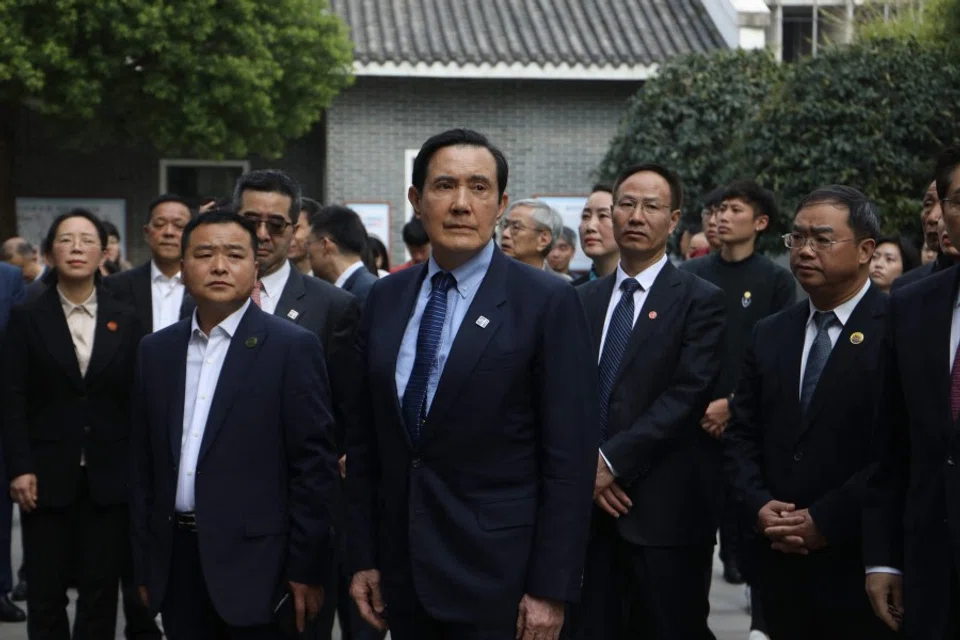
Former Taiwan President Ma Ying-jeou's visit to mainland China moved from low- to high-profile, warming people-to-people cross-strait relations. With the Kuomintang (KMT)'s presidential candidate still undecided, will Ma run for president again in the name of easing cross-strait tensions? This question has recently sparked discussions among the people.
Interviewed experts estimate that Ma should not get embroiled in the fierce electoral battle; if he can be the messenger of peace around the mainland, the US and Taiwan, while the KMT puts up a candidate who can best unite the median voter and the non-Green camp, the Blue camp will have a chance of seeing a reversal of fortunes at the elections.
Ma and his delegation embarked on a 12-day ancestral trip to the mainland on 27 March, enduring criticisms from anti-China activists on the island. But he withstood the pressure and calmly interacted with mainland officials and the people, proclaiming the "Republic of China" (ROC) and expressing the idea of different interpretations of the "one China" principle, letting people on both sides of the strait see rays of hope for peaceful exchanges.
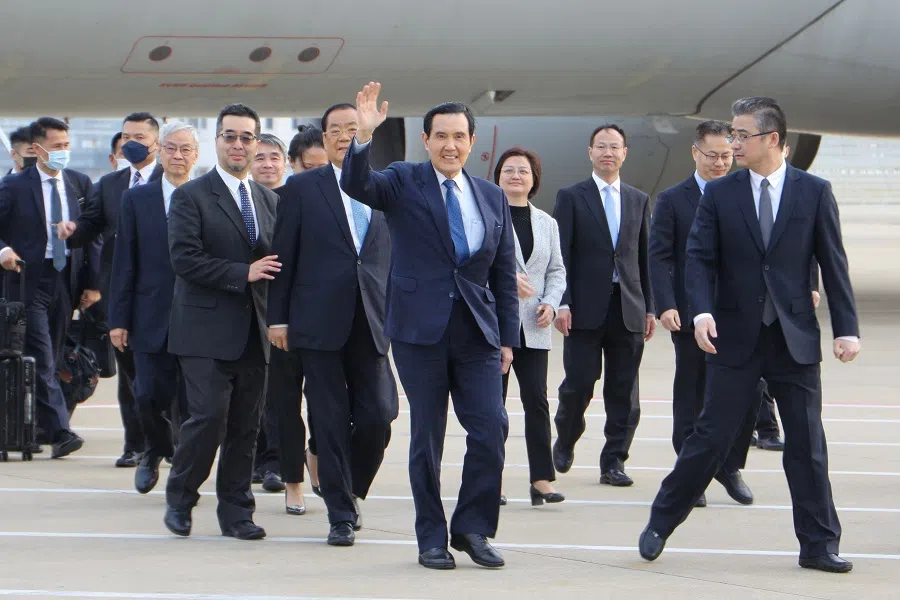
Associate Professor Tu Sheng-tsung, chair of Ming Chuan University's Department of Radio and Television, told Zaobao that the department's data volume centre had measured the data volume of three news reports from 25-27 March, finding that news about Ma's trip to the mainland only garnered a volume of attention of 109,844 (36,9%), lagging behind the news of a baboon that had escaped from Leofoo Village which was later shot dead (176,620, or 59.34%).
The ripple effect to be gained from this uptick in positive sentiment is not to be underestimated, as the situation also reveals an easing of relations between the mainland, the US and Taiwan.
Proclaiming the ROC in mainland China
However, the situation quickly turned around. Tu observed that after Ma referred to Taiwan as the ROC in mainland China, the volume of attention on his visit and his approval ratings skyrocketed, overshadowing the coverage of Taiwan President Tsai Ing-wen's trip to the US. The ripple effect to be gained from this uptick in positive sentiment is not to be underestimated, as the situation also reveals an easing of relations between the mainland, the US and Taiwan.
Following his efforts at warming relations between both sides of the Taiwan Strait, Ma is rumoured to be visiting the US in the latter half of the year to set a tone of peace between the mainland and the US. KMT legislator Chen I-hsin had said in an interview on 31 March that Ma may lead a youth delegation to the US during the summer break to strike a balance between cross-strait relations and Taiwan-US relations. When asked about a potential trip to the US, Ma's office kept a low profile and said that there were no such plans for now.
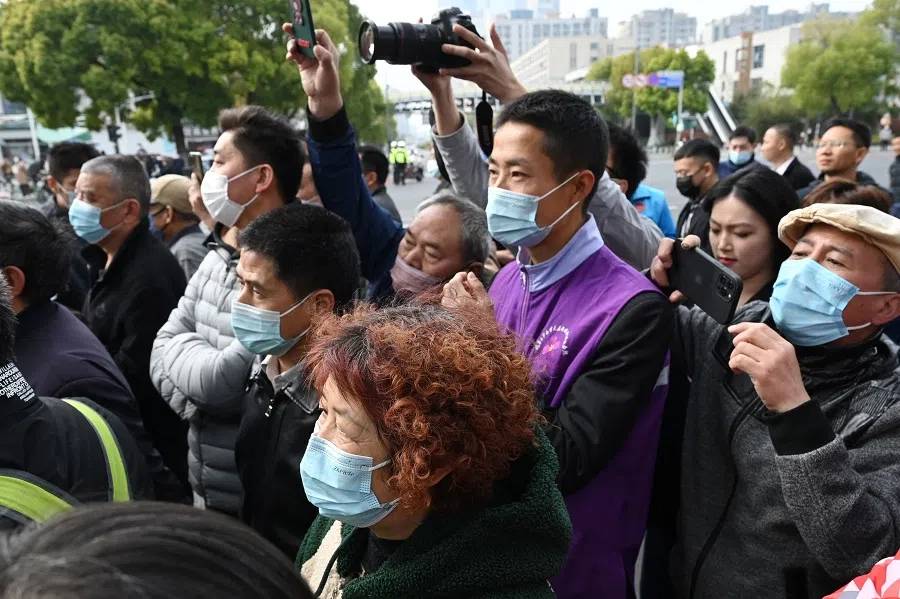
Taiwan will hold its presidential election nine months from now, on 13 January next year. The ruling Democratic Progressive Party (DPP) is scheduled to name DPP chair William Lai Ching-te as its candidate on 12 April, while the Taiwan People's Party, a rising third force, has confirmed its nomination of party chair Ko Wen-je.
On its part, the KMT is trailing - it has not decided on its candidates, its supporters are anxious, and its poll numbers are plummeting.
New Taipei City mayor Hou You-yi once led in the polls but is now significantly behind, as he marks his hundredth day in office on 3 April. If he accepts the nomination and resigns to run for president, finding a successor and ensuring victory in the by-election will be tough issues.
They feel that while he [Ma] is 73 years old this year, many world leaders in their seventies are still active in politics, and if he were to run for president again, he could help to find a way to peace across the Taiwan Strait.
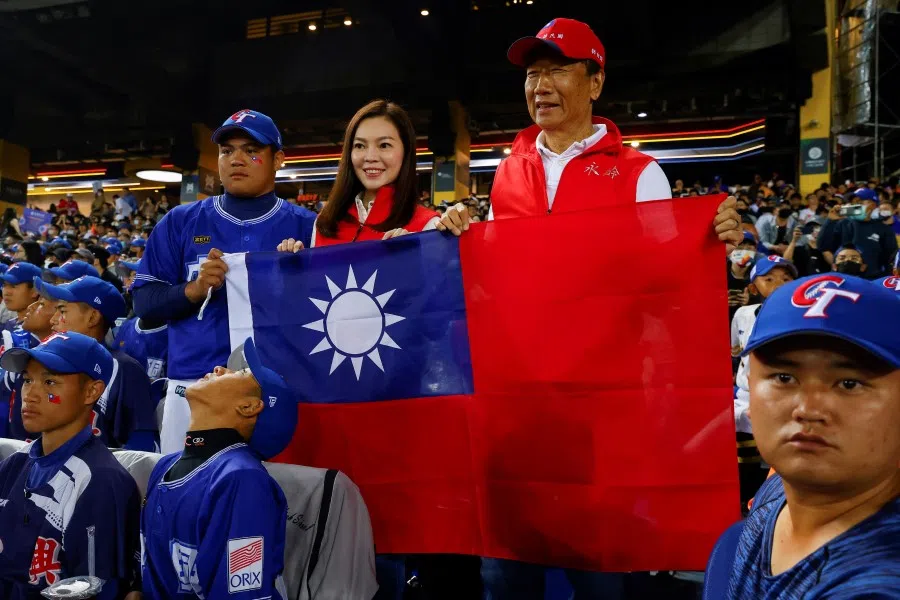
In addition, non-partisan Foxconn founder Terry Gou also wants to run under the KMT ticket, while former Kaohsiung City mayor Han Kuo-yu was also recently rumoured to be on the nomination list; the KMT has clarified that he is not on the list of candidates.
Ma Ying-jeou has sizeable support from Blue camp
Amid the chaos, many KMT supporters are pinning their hopes on Ma Ying-jeou, who was in power for eight years. They feel that while he is 73 years old this year, many world leaders in their seventies are still active in politics, and if he were to run for president again, he could help to find a way to peace across the Taiwan Strait.
... he could lead young people to move between both sides of the Taiwan Strait and between the US and Taiwan, setting the direction for cross-strait exchanges and peace, and marking his own place in history.
Tu, who has been studying cross-strait relations, assessed that Ma has more room to manoeuvre now that he is no longer in office. He said that during Ma's administration, national defence, diplomacy, and cross-strait policies were put to the test, but his domestic governance was criticised as indecisive, which led to the KMT losing its lead and being overtaken, until today. If Ma were to enter the presidential election again, his past shortcomings in governance would inevitably come under scrutiny.
However, Tu said that given Ma's position within the KMT, he could lead young people to move between both sides of the Taiwan Strait and between the US and Taiwan, setting the direction for cross-strait exchanges and peace, and marking his own place in history.
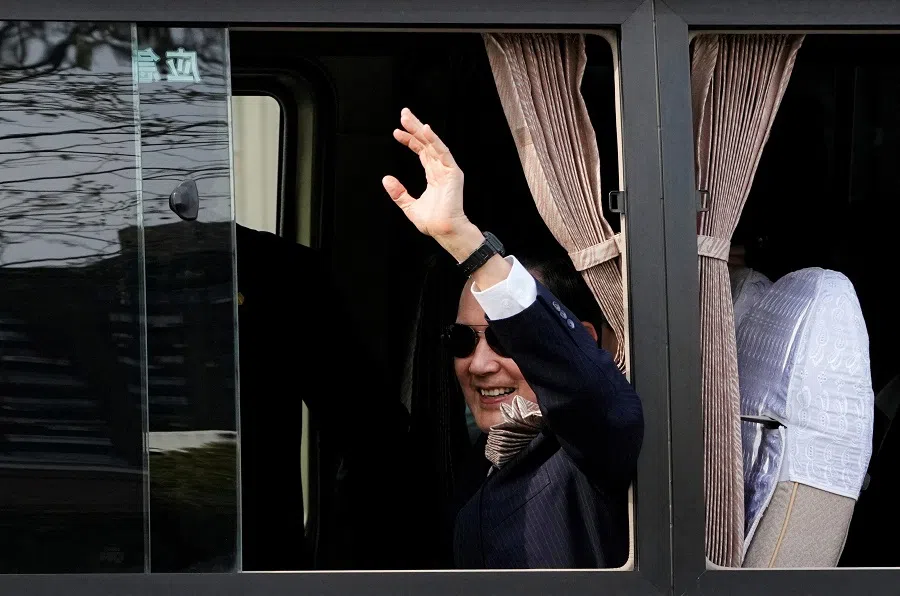
Tu assessed that with the DPP ready for battle and ahead in polls and momentum, the KMT must nominate the strongest candidate in domestic governance, run with the ball in implementing Ma Ying-jeou's cross-strait rhetoric and the "peace framework" of being "at peace with China, pro-US, friendly to Japan, and anti-war".
Tu felt that each KMT candidate has their strengths and weaknesses, and if the KMT want to win, they must integrate non-Green forces, including Ko Wen-je and Terry Gou; once the nomination is accepted, they have to quickly come up with a rhetoric of peace that will steady the people. The candidate also needs to be resilient and able to withstand the mudslinging tactics of the Green army's propaganda offensive flanked by the online army, as well as attract young and swing voters.
This article was first published in Lianhe Zaobao as "国民党候选人悬而未决 为化解两岸逆境 马英九或再选总统?".
Related: All the subtleties: Former Taiwan President Ma Ying-jeou's words and actions in China | How Ma Ying-jeou tested Beijing's flexibility towards Taiwan | Political significance of former Taiwan President Ma Ying-jeou's China visit | Will former Taiwan President Ma Ying-jeou's China visit win support for the KMT? | Can DPP's new chair William Lai win the Taiwanese presidential election in 2024? | 'Resist China, protect Taiwan' becoming a consensus in Taiwan





